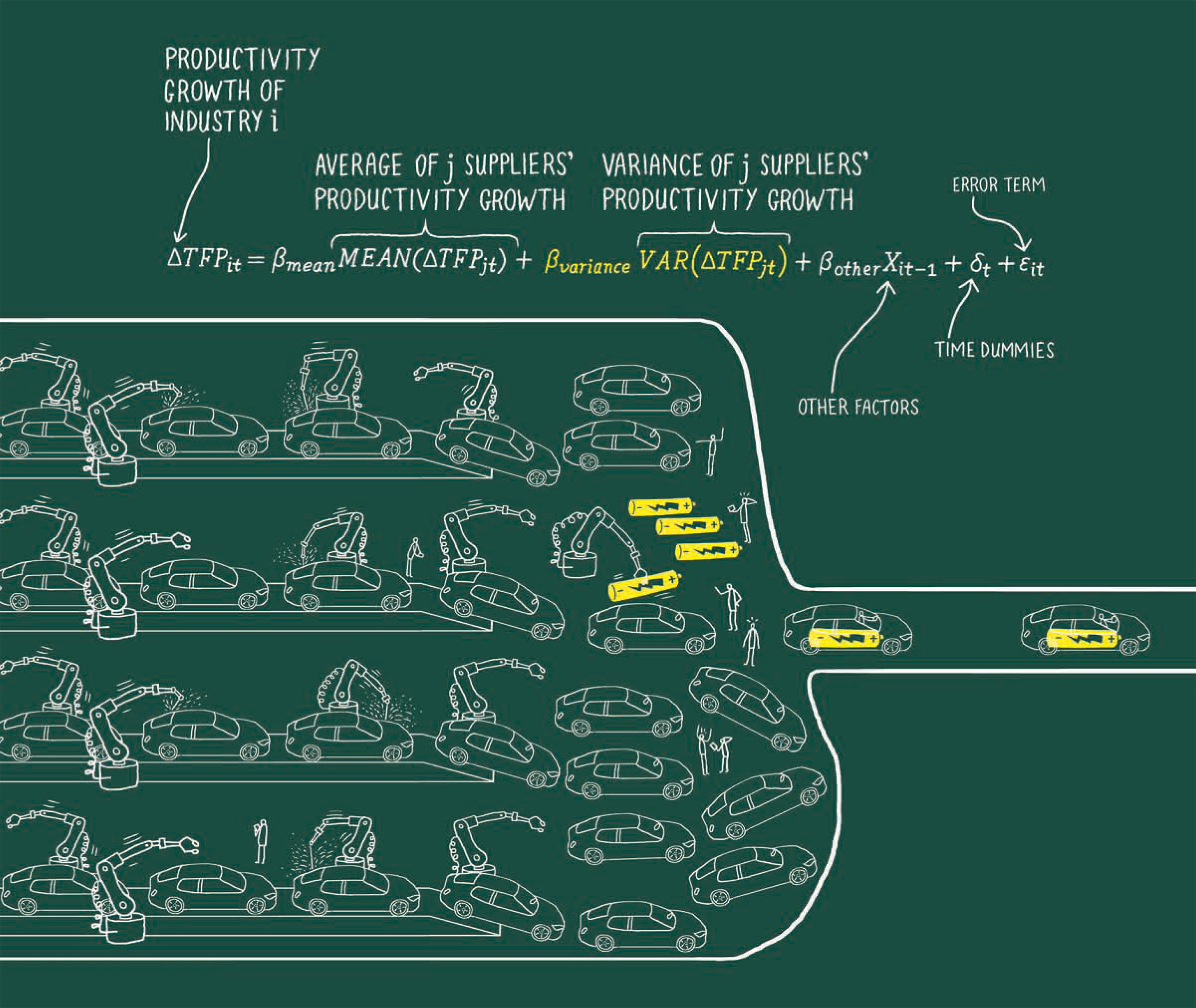
The Equation: Are Supply Chains Holding Back Productivity Growth?
- February 27, 2024
- CBR - Economics

In some cases, the ability of a company or sector to innovate depends on its suppliers. A good example can be found in the auto industry, where progress toward all-electric cars hinged on the creation of the lithium-ion battery, with its high energy density, high efficiency, and rechargeability, as a replacement to low-energy-density predecessors. Innovation bottlenecks could explain why US productivity growth has been disappointing since the 1970s, according to research by MIT’s Daron Acemoglu and David Autor and Chicago Booth’s Christina Patterson. In their model, an industry’s technological progress (measured by total factor productivity growth) depends partly on its suppliers’ simultaneous advancements. If some suppliers are innovating at a much faster pace than others, this uneven development across sectors could hinder an industry’s growth. To learn more, read “Lopsided Innovation Causes Productivity Slowdowns.”

Illustration by Peter Arkle

A Q&A with Chicago Booth’s Canice Prendergast about the forces that influence prices for artwork
The Market for Contemporary Art Is a Little Bananas
An analysis of school choice in Los Angeles examines its impact on educational inequality.
Giving Students a Choice Can Make Schools Better
A long-running US survey also finds that conservatives are happier than liberals.
Marriage May Be a Key to Happiness

The prestigious award from the American Finance Association recognizes top academics whose research has made a lasting impact on the finance field.
Example Article Swiss

At the Kilts Center’s annual Case Competition, a student team leveraged LLMs to create innovative product solutions for Microsoft.
Example Article Swiss

The Booth dean and professor (1939–2024) was an expert in microeconomics, strategy, and industrial organization and served in the US government.
Example Article SwissYour Privacy
We want to demonstrate our commitment to your privacy. Please review Chicago Booth's privacy notice, which provides information explaining how and why we collect particular information when you visit our website.